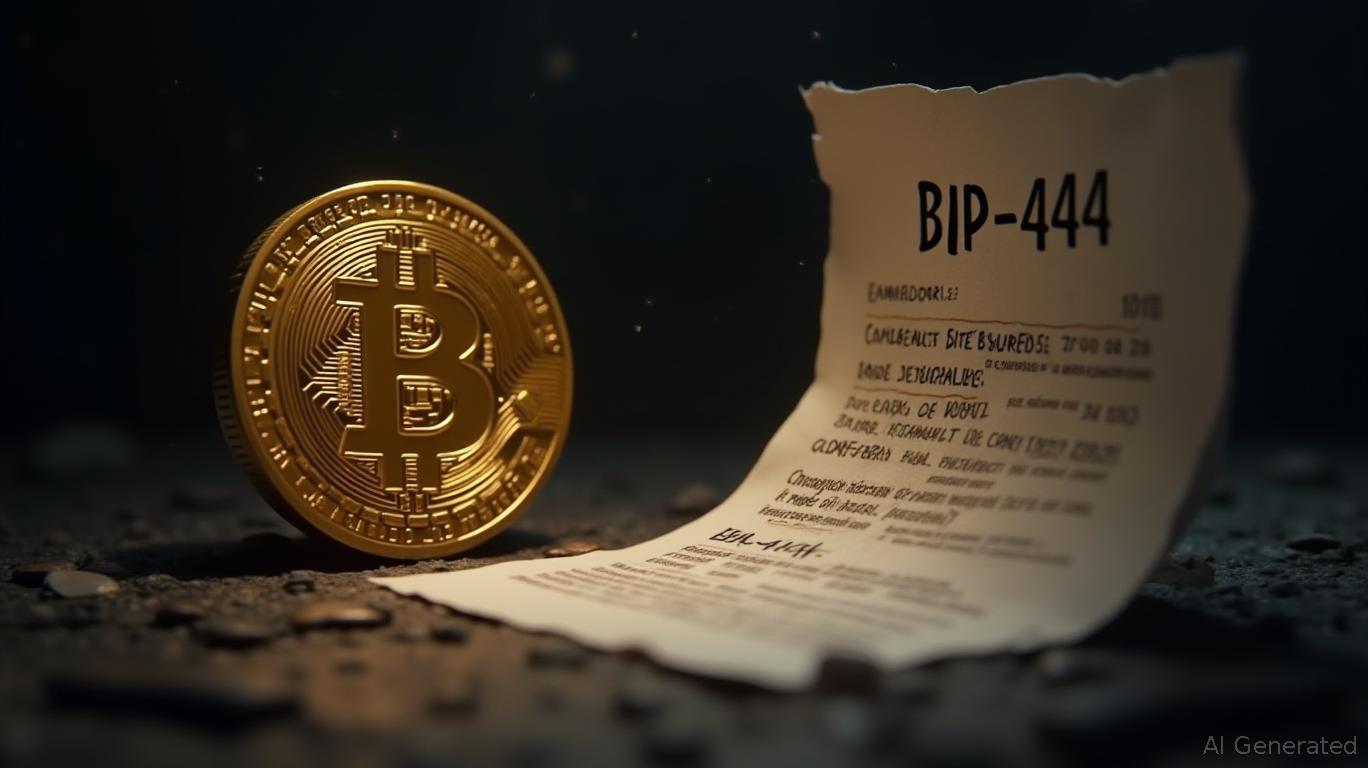Bitcoin News Today: Is Bitcoin's BIP-444 a Step Toward Enhanced Security or a Threat to Decentralization?
BIP-444 Proposal for Bitcoin Sparks Controversy Over Blockchain Data Restrictions
The

Published on October 18, 2025, the proposal follows the v30 update of Bitcoin Core, which eliminated strict limits on data added to transactions through OP_RETURN as long as adequate fees are paid, according to a
. While this update was intended to provide greater flexibility, it has also led to a surge in NFTs, memecoins, and other data-intensive uses. BIP-444 would set firm limits—83 bytes for OP_RETURN and 34 bytes for other script data—effectively blocking techniques like Ordinals inscriptions, while giving developers a year to find lasting solutions.Advocates believe the proposal is essential to shield node operators from legal consequences for storing prohibited material, such as child sexual abuse content. "Node operators are put in a position where they must either break the law or shut down their nodes," the proposal warns, suggesting this could threaten decentralization and weaken Bitcoin’s security, as reported by TradingView. Veteran developer Luke Dashjr, a vocal critic of Ordinals, has backed the proposal, describing it as "super simple" and sufficient to allow time for a more permanent answer.
Opponents, on the other hand, see the proposal as undermining Bitcoin’s open-access principles. They point out that the ability to store arbitrary data has existed since Bitcoin’s beginning, and restricting it amounts to censorship. Casa co-founder Jameson Lopp noted the absence of clear definitions for "illegal content" and mentioned that legal experts disagree on node operators’ responsibilities, according to TradingView. Ordinals supporter Leonidas cautioned that normalizing such restrictions could set a troubling precedent, likening it to government-imposed monetary censorship in a
.The anonymous creator of the proposal, "Dathon Ohm," has no established background in Bitcoin development, raising doubts about its legitimacy, as noted by TradingView. Although Dashjr denied being the author, the proposal has gained momentum on social media and forums, bypassing official venues like the Bitcoin Development Mailing List, which is necessary for wider acceptance, according to CoinhubExchange.
Despite being intended as a one-year measure, BIP-444’s temporary status has not eased critics’ worries. Some fear it could become a permanent fixture, hindering future innovation. Supporters argue that the limited duration provides an opportunity to develop consensus-based alternatives without endangering network security. This debate highlights a larger struggle within Bitcoin: finding the right balance between decentralization and effective governance.
As these discussions continue, the outcome of the proposal is still unclear. Its implementation depends on the backing of miners and node operators, with reports from Ordinals supporters cited by CoinhubExchange suggesting that more than half of Bitcoin’s hash rate is willing to process transactions if fees are sufficient.